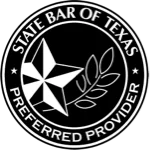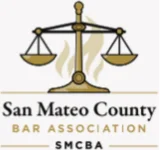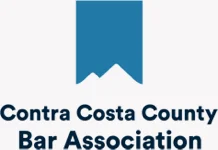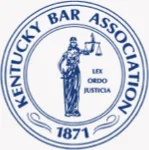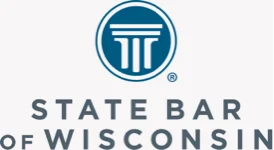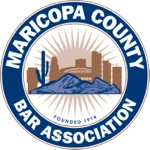Your website is supposed to help you demonstrate credibility and trustworthiness to potential clients. Badges are like gold star stickers, right? The more the better? Nope, sorry.
Badges on your lawyer website—”Best Lawyers! Bar Association Member!”—can make or break that crucial first impression. They may be trendy, but all badges aren’t created equal. From seemingly prestigious accolades like Super Lawyers to industry-specific memberships, there’s a wide array of badges available
In this article, we’ll explore the dos and don’ts of choosing badges and showcasing badges on your legal website. From avoiding pay-to-play schemes to where badges should be located on your website, we’ll ensure your badges bolster your reputation rather than tarnish it.
Here’s an explanation of the most common badges lawyers post on their sites
Not all badges are legit. Some are just memberships to clubs you’ve never even heard of. You’ve also got to watch out for the pay-to-play ones, where you have to pay the award-givers for their advertising materials. Paying for your own trophy? Not ideal.
Still, amidst the noise, there are badges that truly mean something. They’re the ones you’ve earned through blood, sweat, and maybe a few late nights at the office. Understanding which is which can make all the difference in showing off your street cred online.
Here are the badges we’re most often asked to include on attorney websites:
- Super Lawyers
- Best Lawyers
- Million Dollar Advocates
- Martindale-Hubbell:
- Bar association memberships: You can showcase your membership in institutions like the American Bar Association (ABA), your state bar association and your local bar association.
We also sometimes see badges that link out to a lawyer’s listing on a site like Avvo or Justia.
This might seem helpful, but it’s actually diverting someone away from your site, where you can’t control their experience or encourage them to book a consultation. Once someone clicks away, what’s stopping them from clicking to a competitor site once they can see other listings?
Finally, there are some non-award badges like the LAWcares badge. This one is a relatively new designation created by lawyers who want to encourage more pro bono work.
Deciding whether or not to include a badge? Think of your user
We know your badge means a lot to you, but you’re not the one who’s deciding whether or not to hire you. It may be hard to hear, but it’s the hard truth that lawyers need to understand when creating a digital asset like a website.
Your potential client is the one whose opinion matters the most.
So, think carefully about how a given badge might appear to a stranger. Will it mean anything to them? Will it communicate trustworthiness? Is it actually a value-add for your potential client? Does it set you apart from the competition? Does it highlight your unique selling proposition?
If a badge is going to add value, build trust, increase memorability and encourage momentum for potential clients, include it. Otherwise, leave it out.
Don’t use badges that may run afoul of ethics rules
Avoid legal repercussions and maintain your professional reputation by reading the rules and following them. It’s harder than it sounds for busy lawyers!
Many bar associations impose detailed guidelines on the use of badges to ensure ethical advertising practices. Using prohibited badges or breaking these rules can lead to disciplinary action. Only display badges that are ethically earned and comply with advertising ethics rules.
For instance, the state of New Jersey has very strict rules about using badges and other advertising with unsubstantiated superlatives like “best.”
To stay compliant, familiarize yourself with your state’s rules and regulations regarding advertising and badge usage. These guidelines are typically outlined in your state’s Rules of Professional Conduct or specific advertising rules. Regulating this type of marketing is overall a good thing, but it can make the design process trickier in some states.
Don’t use badges that mean nothing on their own to your visitor
If a badge fails to convey its meaning at first glance, make sure there’s accompanying descriptive information or a link for visitors to learn more. Make it easy for someone to understand the significance of the badge and how it relates to your expertise or qualifications.
Don’t use outdated badges
If your badges are from years ago and there are no recent ones, visitors might wonder if your service has worsened—and this could deter potential clients.
Displaying outdated badges on your website can suggest a decline in your practice over time.
It’s like a restaurant displaying a “best of 2017” award in its window. Instead of excitement about the quality, you’re probably wondering what happened between then and now. Why isn’t there a recent award? Did the quality drop off?
A general rule of thumb is to leave out anything from more than three years prior.
Update your website with current achievements to show ongoing excellence. This shows that you’re committed to maintaining high standards which builds trust with clients.
Do place and format your badges correctly
Here’s the truth: Many badges won’t actually be seen by a website visitor simply because the badge designs look a lot like those annoying sidebar ads that we’ve all trained ourselves to ignore.
Where to put badges:
Place it where it means something to your target client. Prominent placement makes sense if it’s actually a value-add, like in the hero or footer. Sidebar placements can be visually ignored. You can also place the badge on an attorney profile, if the individual attorney earned the award or designation.
Note that your state’s advertising rules may prohibit your firm from including an individual’s badge on a general page like the homepage. That’s misleading as it looks like the entire firm earned the badge, at first glance.
How to format badges:
If it’s a linked badge, make sure it’s a “no follow” link so you aren’t helping another company’s SEO at your own expense. Make sure the badge does not link to your competition. Use appropriate sizing so that all text is legible. Include alt text for your low-vision users.
Bottom line: Remember that badges are just one tool at your disposal when it comes to building trust.
Mention your award in the text of your bio as well as posting the visual badge. Showcase your qualifications beyond badges, such as CLEs you’ve presented at, client testimonials and other pro bono projects or boards you serve on.
Review and next steps
By adhering to the best practices outlined in this article, your badges will accurately reflect your expertise and build trust with potential clients.
Get expert help creating a stunning website that shows off your accomplishments and generates leads. Save yourself time and use a customizable layout that’s already been design-tested and built specifically for legal professionals. Discuss your goals in a free consult.




